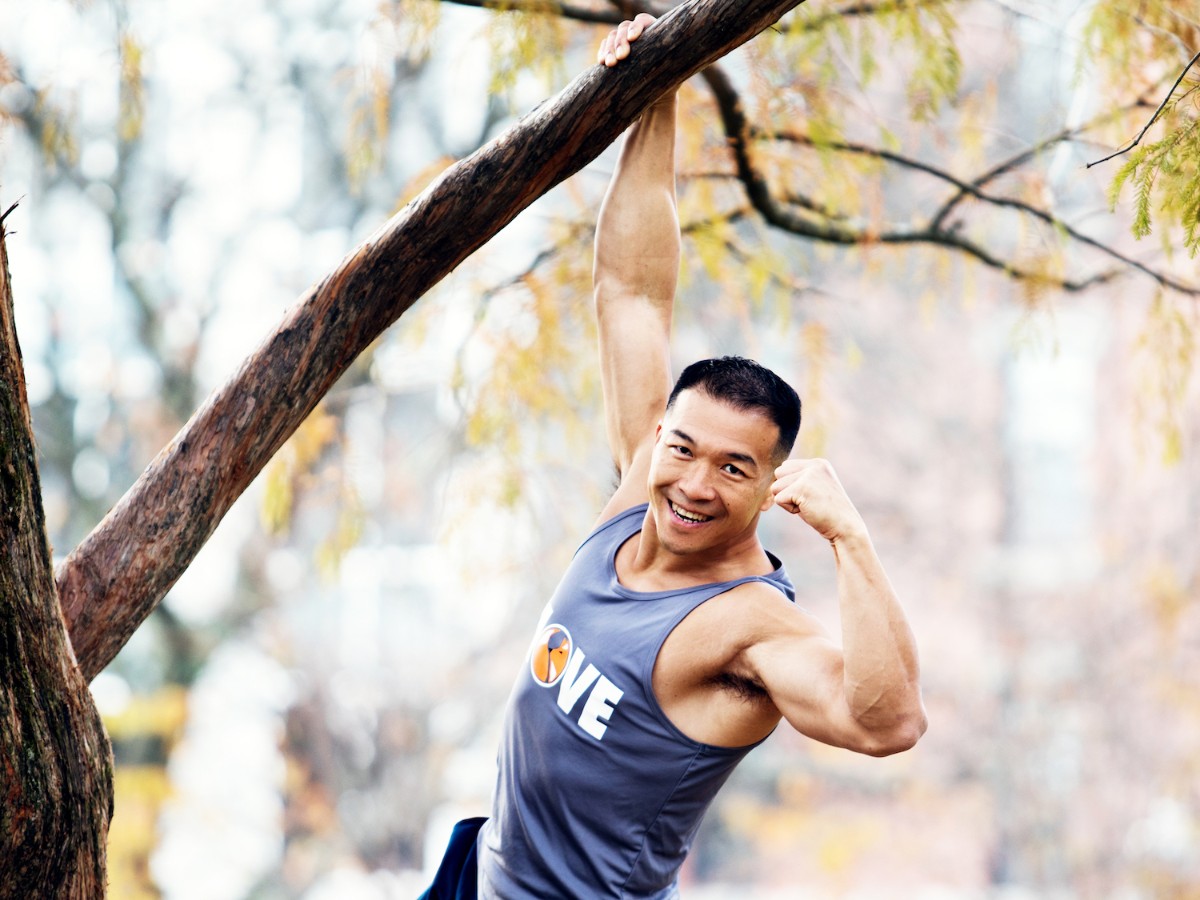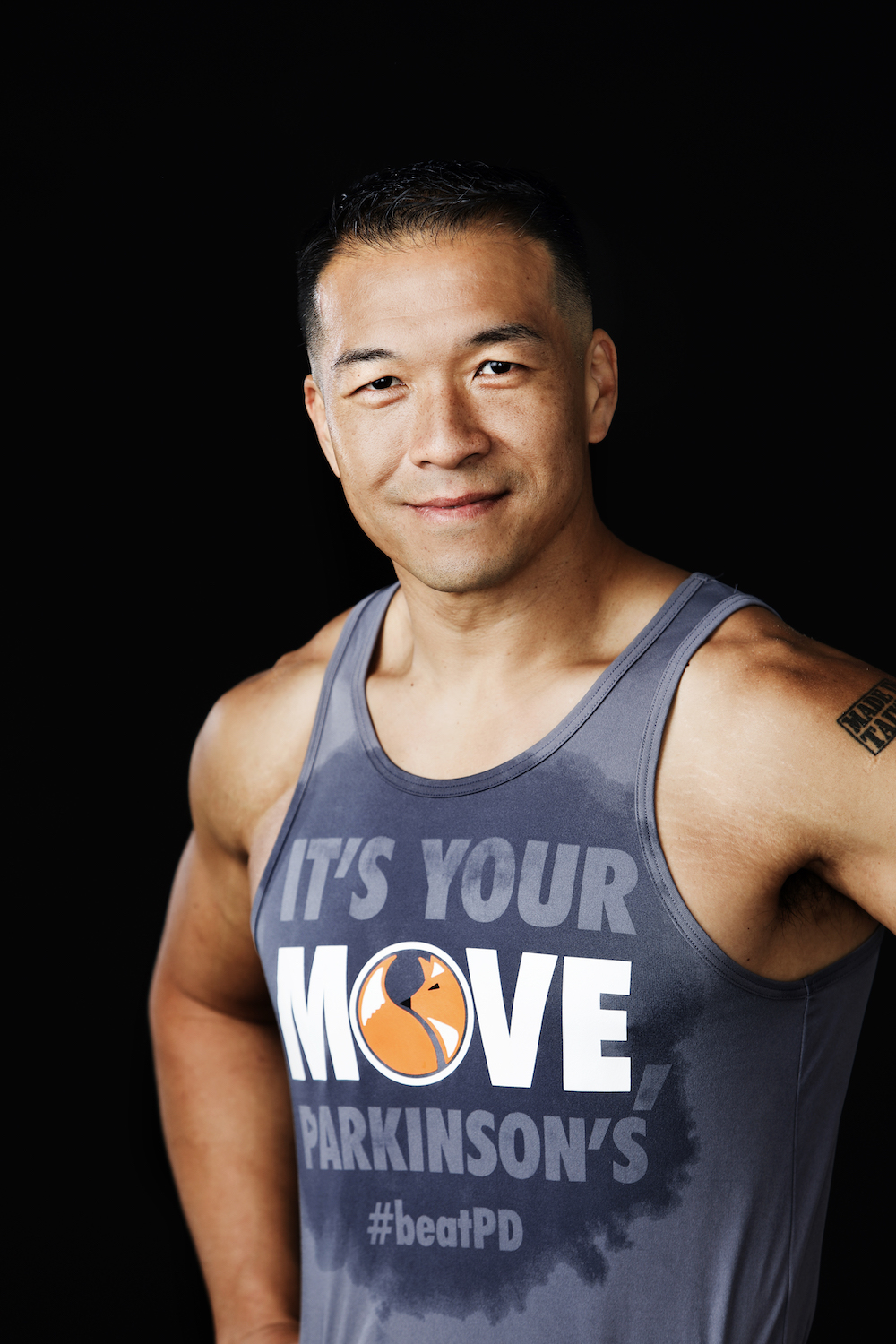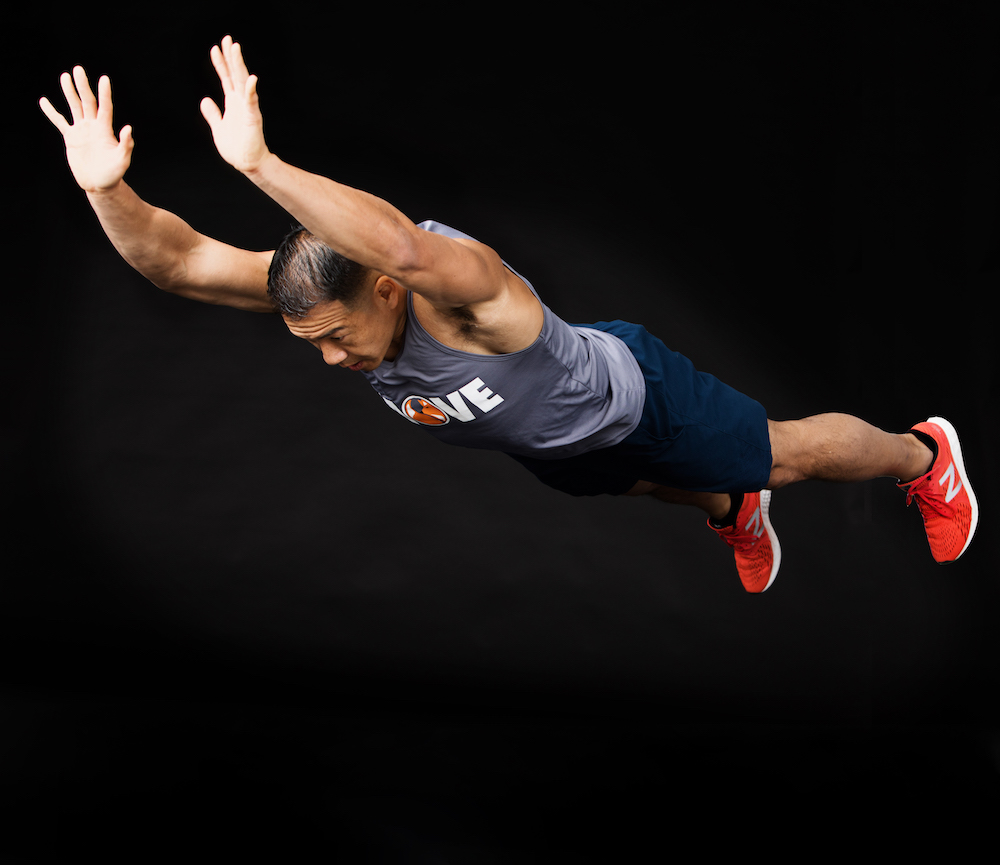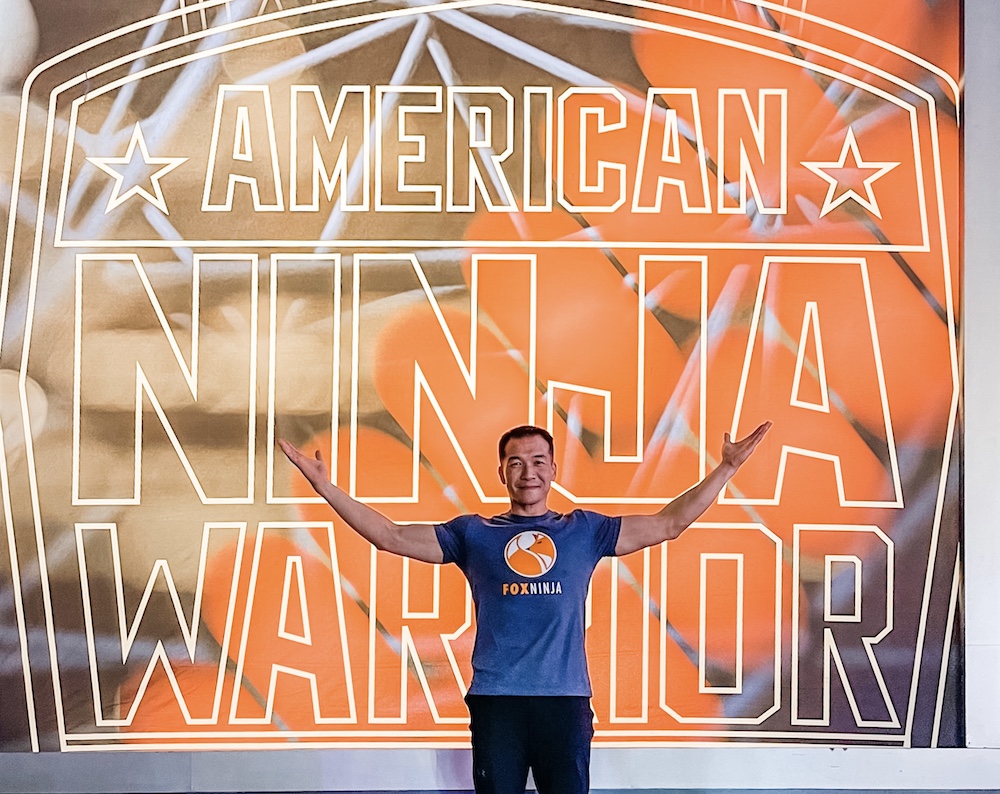Jimmy Choi can pinpoint the day he decided he would live well with Parkinson’s disease.
It was 2010, seven years after his diagnosis, and Jimmy, then 34, tumbled down a full flight of stairs in his home while carrying his 10-month-old son, Mason. His Parkinson’s symptoms had been getting worse, to the point where he needed a cane for walking, but the stairs had a safety railing, which he thought would provide sufficient support. “I remember that day distinctly, because everything was going in slow motion,” he recalls. “I went to take a step and one of my legs didn’t cooperate with the command my brain was sending it. I felt myself begin to fall.”
Jimmy used his body to protect Mason as they bounced down the stairs and hit the ground. Amazingly, neither was injured. But Jimmy’s wife, Cherryl, and their 2-year-old daughter, Karina, had witnessed the accident. As he looked up into their frightened faces, he knew he couldn’t keep pretending he had his illness under control. After seven years of doing the bare minimum to manage his symptoms and denying that his health was in decline, Jimmy felt that he had become a danger to the family he loved more than anything.
“I realized I couldn’t change the fact that I had Parkinson’s, but I could change the way I was living with it,” he says. And he spent the next 13 years doing just that, transforming his life through fitness and, in the process, becoming an inspiration to his kids, his wife, and millions of people living with Parkinson’s disease.
Today, at 48, Jimmy is incredibly fit and vibrant, a direct result of his determination to embrace life with Parkinson’s. Since that life-changing tumble, he has completed more than 100 half-marathons, 16 marathons, a double marathon, and dozens of 10Ks. He’s earned three fitness-related entries in Guinness World Records. And, taking on a challenge presented by Karina, he’s competed on five seasons (2017 through 2021) of American Ninja Warriors, the hit NBC fitness competition series.
Jimmy Choi on ‘American Ninja Warrior Family Special’ in 2022, with his daughter, Karina (center), and his cousin Miinkay.
Jimmy and Cherryl have become leading fundraisers for Parkinson’s, to date raising more than $800,000 for the Michael J. Fox Foundation for Parkinson’s Research, and he’s arguably done more to raise awareness of the condition than anyone other than actor Michael J. Fox himself. Today Jimmy is a full-time motivational speaker, sharing his story and inviting everyone facing adversity to “find their own ways around the obstacles that life throws at them.”
A Diagnosis That Changed Everything
At the time of Jimmy’s diagnosis, he was 27 and on top of the world — newly married, an up-and-coming software developer at a leading tech company, and excited about starting a family. He had no medical worries until he applied for a life insurance policy and was required to take a physical exam. The nurse conducting the physical also worked in a neurology office and, while Jimmy seemed healthy for the most part, she noticed things about his movements that were all too familiar to her.
“She never said the word ‘Parkinson’s,’” Jimmy says. “But she gave me her notes and told me to show them to my primary care physician.”
Credit: Diana Levine
The next five to six months were a blur of medical tests and consultations. There’s no single definitive test for Parkinson’s, and some of its earliest symptoms — stiffness, balance issues, and decreased facial expression — can be caused by any number of conditions. Only 10% to 20% of the nearly 1 million Americans with Parkinson’s have the young-onset form of the disease, meaning they were diagnosed before age 50, and it’s extremely rare for someone to be diagnosed while in their 20s. Yet Jimmy’s third neurologist immediately suspected young-onset Parkinson’s, and when she prescribed him Parkinson’s medications, he noticed that he felt better. Several months later, a GE HealthCare DaTscan (ioflupane I 123) helped confirm the doctor’s diagnosis. A DaTscan is a brain-imaging test that uses a small amount of a radioactive drug to measure the level of a patient’s dopamine cells, which help control body movements. A patient with Parkinson’s will have fewer dopamine cells.
“I remember hearing the words ‘Parkinson’s’ and ‘no cure,’ and I was just in shock,” Jimmy recalls. “I didn’t know much about it, but I thought this was a disease for older people. I’d been active all my life. I had ambitious career goals!”
After learning English at age 10, when his family moved to the Chicago area from Taiwan, Jimmy had excelled in school. He’d graduated from Purdue University, in Indiana, with degrees in finance and computer programming. As he’d often tell Cherryl, he aimed to become a tech industry CEO by the time he was 45.
Choi performs a “flying burpee.”
Those dreams came under threat when he was diagnosed, and when a doctor told him he would likely be in a wheelchair by his mid-40s. “Do whatever you can,” the doc told him, “so your family will be prepared to care for you later in life.” Jimmy reacted by throwing himself into his work and keeping his condition a secret from most of the world. He continued to enjoy career success, but he fell into depression as his balance and mobility began to suffer, and he gained around 90 pounds over the next few years.
Radical Acceptance, Radical Change
After the stairway accident wake-up call, Jimmy faced his illness head-on. He began communicating more regularly with his doctors and signed up for several clinical trials, including one that investigated the effect of exercise on people with Parkinson’s. The simple, machine-assisted workouts wore Jimmy out, but, to his surprise, they also led to improvements in his symptoms.
Jimmy began an at-home exercise program by walking, with his cane, partway around the block. It was all he could do, and it was challenging. But he kept going, with a simple goal: to take a few more steps each day than he had done the day before. Eventually he could make it a quarter of a mile, and then a mile, without his cane. Then he started running. By April 2012 he’d completed his first 5K, and from there — simply by asking himself “What can I do tomorrow that is more than I did yesterday?” — he worked up to 10Ks and beyond.
In October 2012 he ran the Chicago Marathon as a member of the team sponsored by the Michael J. Fox Foundation, where he now serves on the patient board of directors. He considers Fox a mentor who has helped him learn to live his best life, in part by practicing gratitude.
“Instead of concentrating on what Parkinson’s has taken away, I concentrate on what Parkinson’s has helped me do,” he says. “I played sports when I was young, but in the past few years I was the fittest and strongest I’ve ever been in my life. I stay focused on what I can still achieve — which is a lot.”
When not speaking at nonprofit and corporate events around the world, Jimmy is changing up his fitness routine, spending more time in the gym and less time pounding the pavement, to protect his joints after years of intense running. He’s also enjoying spending time with Cherryl and his kids, who are now teenagers.
“My goal has always been to be there for my family, to provide the best I can for them,” he says. “Once the kids are off to college and starting their own futures? That’s when I can start looking for a wheelchair. Until then, I’m not even thinking about one.”
Jimmy Choi is a paid consultant for GE HealthCare and was compensated for participation in this interview. The statements made here by Choi are based on his own experience.





